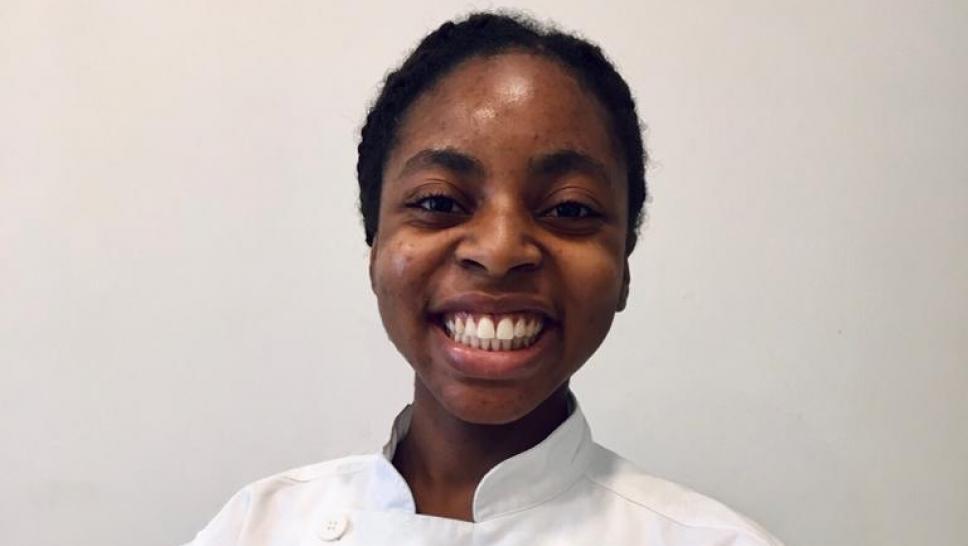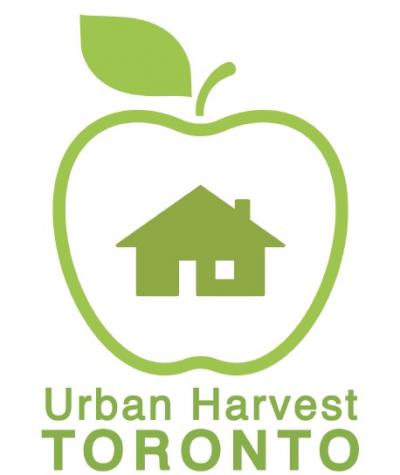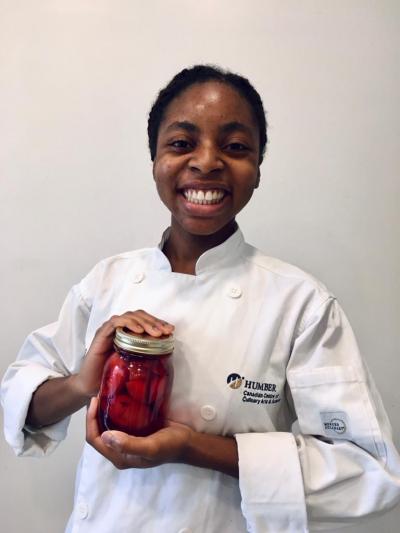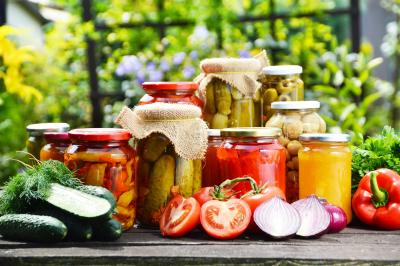
Angelique Ricketts
People in Humber’s local communities have faced challenges such as food insecurity and isolation before, but the impact of COVID-19 has exacerbated these issues. The college has been part of initiatives including GlobalMedic’s local emergency response, student government IGNITE’s food insecurity plan - and a new project.
Humber's Community Outreach and Workforce Development (COWD), Faculty of Business, Faculty of Media & Creative Arts departments and Urban Harvest Toronto have collaborated to help Rexdale community residents prolong their food and reduce food waste.
Produce and partnership
Urban Harvest Toronto is a food access and waste diversion program that works with urban gardeners with a surplus of produce and connects them to local food banks to support households facing food insecurity. The program is an initiative by the Rexdale Community Health Centre (RCHC).
The program approached Nivedita Lane, Manager of Community & Partnership Development at COWD, with an idea. Urban Harvest wanted to reach out to the community during COVID-19 and the group needed support.
COVID-19 prevented the program from running its usual in-person food preservation workshops, which helped to develop food preparation skills and provided participants with the opportunity for community gatherings.
That’s where Humber came in. 
“Urban Harvest couldn’t bring in traditional facilitators to train and offer in-person workshops, so we put our heads together to try to leverage what everyone does best given the unique circumstances we find ourselves in,” said Lane.
“We saw this as a creative experiential learning opportunity to involve the expertise of Humber’s amazing faculty and students and to help meet an important community need.”
The result?
Since October 26, local residents have been watching and cooking along with live food preservation workshops that have run weekly by Humber faculty and students, using food provided by Urban Harvest.
Rind and all
The project, funded by the City of Toronto’s Reduce and Reuse program, was created with the community in mind. The menus had to be cost-effective and culturally responsive to a diverse neighbourhood that includes many people of South-Asian, Caribbean and East and West-African descent.
Before the project’s launch, COWD leveraged support from Rudi Fischbacher, associate dean, Faculty of Business and help from staff in the Faculty of Media & Creative Arts. The initiative was able to bring on culinary professor Chef Shonah Chalmers and Culinary Management student Angelique Ricketts to help create and run the workshops. Media student James Aziz was enlisted to film the live sessions so they can be posted to Urban Harvest’s website and reach a wider audience.
Ricketts is assisting Chalmers, who has planned six workshops, each with its own theme. The latest installment, for example, demonstrated root-to-stem cooking.
They’ve been teaching community members to make jellies, jams, and pickles of all kinds to extend the life of food items.
That includes pickled watermelon, rind and all.
Emphasis on Education
 Second-year Ricketts never saw herself at the front of a virtual class like the host of a cooking show.
Second-year Ricketts never saw herself at the front of a virtual class like the host of a cooking show.
“I just told myself to channel my inner Food Network,” she said.
Chalmers asked Ricketts to be her sous-chef, giving the student an opportunity to grow her leadership skills and explore a part of the industry she hadn’t been exposed to.
She has assisted the chef in making jarred plums, pickled spicy green beans and, of course, pickled watermelon rind.
“It was my favourite. It breaks down easily – it's not bitter. You get sweet and salty,” said Ricketts.
Novelty aside, she appreciates the project’s emphasis on education.
“You can stretch your food for the rest of the week. Maybe now they won’t have to worry about where their next meal is coming from. The fact that I can share that knowledge gives me great joy,” she said.
The workshops serve as instructional sessions, but Urban Harvest has also used them as an opportunity to deliver other community resources, including a presentation from FoodShare on container gardening.
“Not only does the program allow for weekly community gathering, but also through our weekly feedback surveys the participants get a chance to actively inform the program direction” said Ayan Yusuf, Urban Harvest’s program coordinator.
“To replicate what we used to do, which was to supply the ingredients at the physical workshop, participants now received food cards on a weekly basis as an incentive and to help offset the cost for ingredients they might not have at home.” 
During the final live session, RCHC’s dietitian will join the group to discuss nutrition, rounding out a short but comprehensive course in food preservation and waste prevention. In the following weeks, Faculty of Media & Creative Arts student Aziz will post the edited recordings of each session to Urban Harvest’s website.
“We all hope that through the program the community participants will be more empowered to lead their own workshops on what they have learned as well as share their own traditional ways of preserving food and reducing food waste” said Yusuf.
“Ultimately, the community can immensely benefit from sustainable community partnerships that create space for residents to contribute their ideas and input.”
Urban Harvest hopes the success of the program will inspire long-term community collaborations supported by COWD and the wider Humber and Rexdale community.